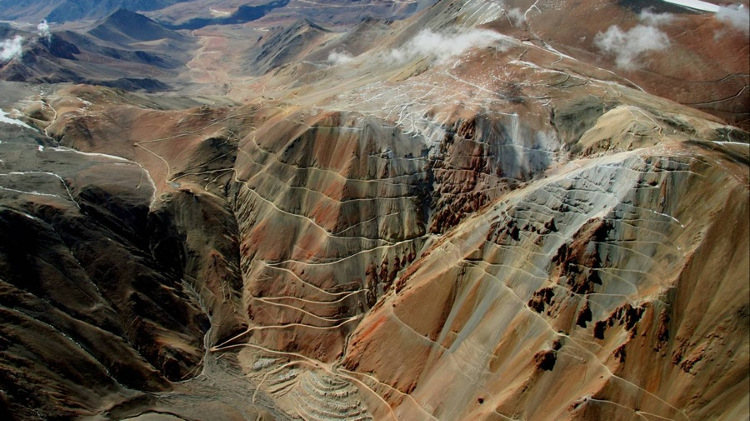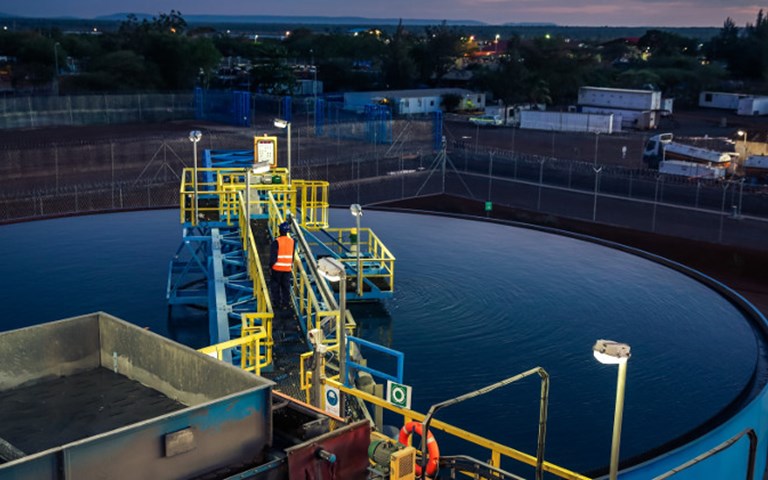Acacia Mining's Bulyanhulu mine in Tanzania was forced to reduce operations this quarter due to an ongoing tax dispute between the company and the Tanzanian government. Courtesy of Acacia Mining
Welcome back to your weekly mining news recap. At the end of every week we’ll catch you up on the mining news from CIM Magazine and elsewhere that you might have missed. Among this week’s headlines: Alberta goes on the offensive in the ongoing Trans Mountain pipeline feud with British Columbia, a tax dispute between Barrick Gold subsidiary Acacia Mining and the Tanzanian government negatively effects first quarter earnings, and Vancouver’s Copper Mountain completes its acquisition of Australian company Altona Mining.
******
Earlier this week, we reported on a press release by Alberta’s provincial government announcing new legislation being introduced that would give them power to restrict exports of natural gas, crude oil and refined fuels across its borders. If passed, the legislation could require companies exporting energy products to obtain a license in order to continue or face a fine. Alberta Premier Rachel Notley reiterated Alberta’s stance on B.C.’s continued opposition to the controversial pipeline expansion project, saying, “We did not start this fight, but let there be no doubt we will do whatever it takes to build this pipeline.”
New low-cost instrumented rock bolts are undergoing a six-month trial at an Agnico Eagle mine. The technology, developed by the National Research Council and ESG Solutions, has the potential to improve ground support monitoring and prevent failures due to weakened bolts from seismic activity and blasting operations. The current system – removing individual bolts by hand for inspection – is time consuming and provides an incomplete picture of the condition of the thousands of bolts generally used in an underground mine.
Acacia Mining, a subsidiary of Barrick Gold operating in Tanzania, reported earlier this week a 45 per cent decrease in first quarter earnings compared to this time last year, due primarily to reduced operations at its flagship Bulyanhulu mine. While Barrick works to resolve a tax dispute between Acacia and the Tanzanian government – Tanzania is accusing Acacia of tax evasion in 2016 – the company is sticking to its 2018 targets of 435,000-475,000 ounces of gold production.
This comes amidst movement in the Tanzanian government, as President John Magufuli named Idris Kikula the new chairman of the country’s mining commission. Since his election in 2015, Magufuli has come down hard on miners in the country in a bid to distribute more of the revenue from the country’s mineral wealth among its people. The appointment of a mining commission chairman is expected to lift a ban placed last July on the issuance of new mining licenses, slated to last until Magufuli appointed a new chairman.
B.C.-based Copper Mountain Mining Company closed a $72-million deal this week to acquire Australian junior miner Altona Mining. This represents a major move into Australia for the company, whose primary asset is its 75 per cent owned Copper Mountain mine near Princeton, B.C. Among the Altona assets it is acquiring is the Eva Copper project, which has a mine life of 14 years and Measured and Indicated Mineral Resources of over 2 billion pounds of copper.
And finally, automated technology is being used more in underground mining operations. Robots have tremendous potential to increase worker safety dramatically by replacing humans in hazardous conditions such as in rock blasting operations or areas with poor air quality. Earlier this week we published an article on Penguin ASI’s advances in underground mining robotics applications with its Mapping 3D Droid (M3D2), which CEO Greg Baiden said solves surveying and positioning problems below surface.



